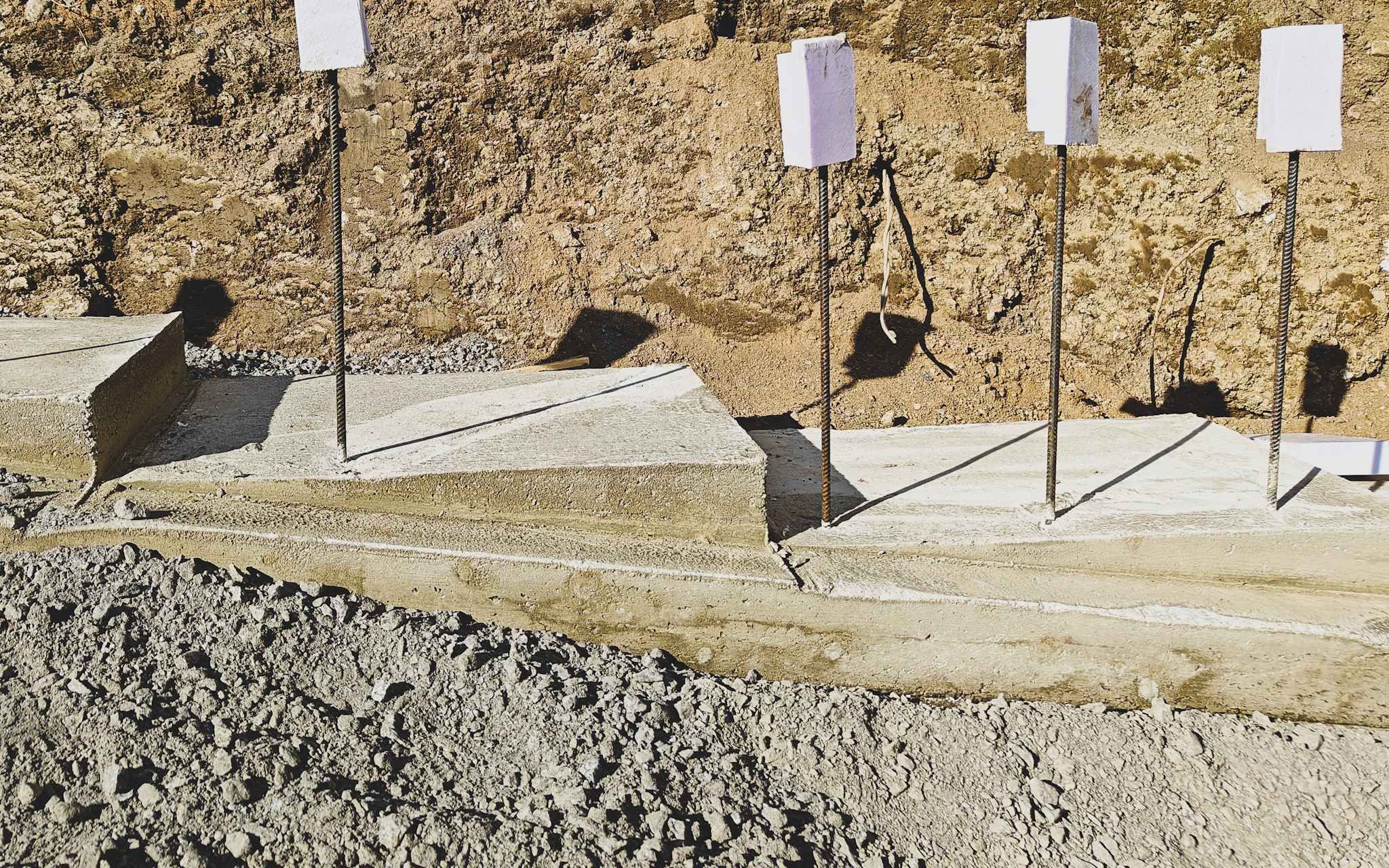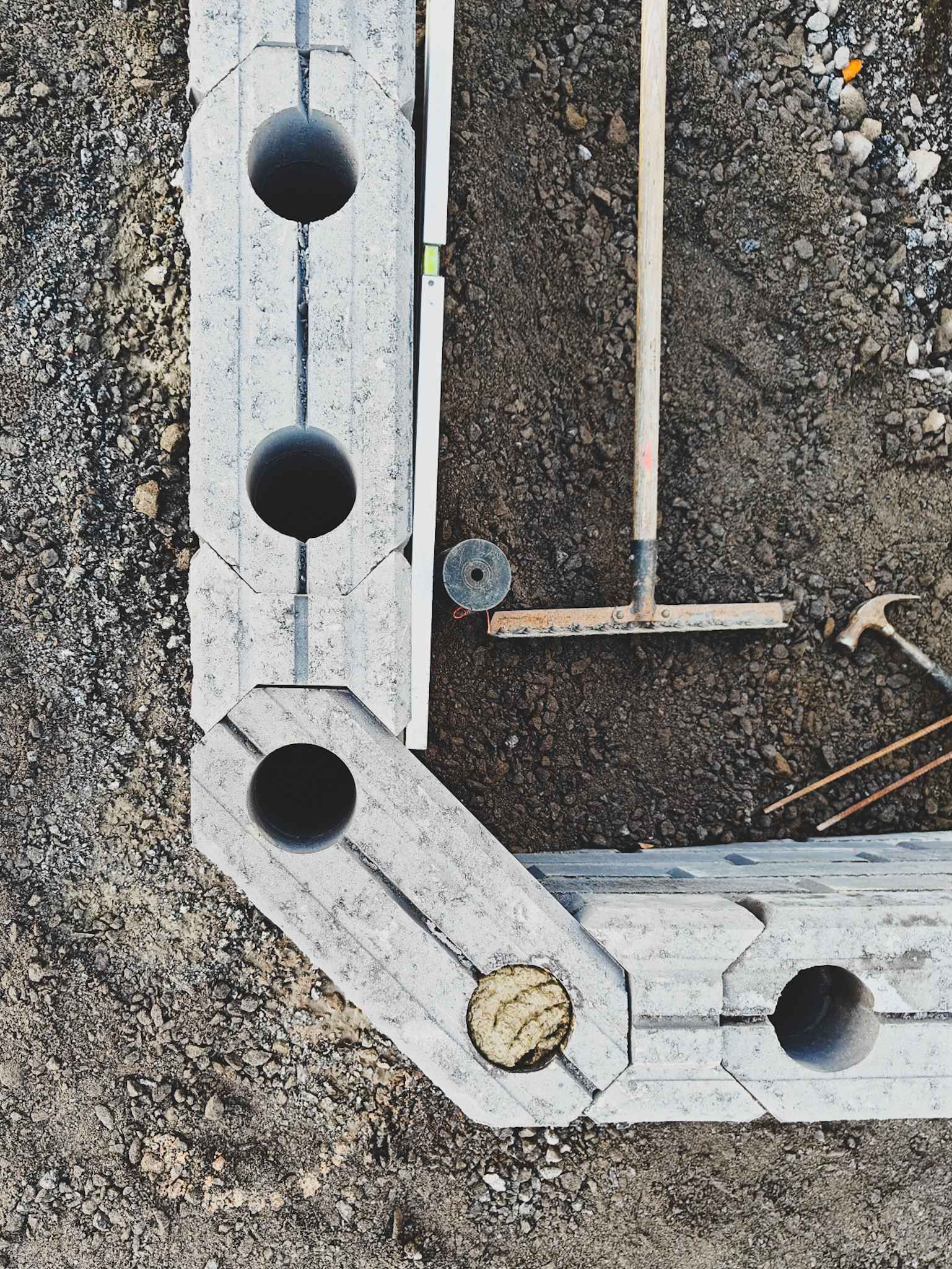We're gonna build a wall...."
And this week, it has begun. The bricks you can see in the picture are actually the "black" version, but they are unfortunately still pretty grey. However, it is the only option available, so it is what it is. It looks pretty good though.

Because of the weather and as this is a retaining wall, the highest parts of the wall required a solid foundation to be laid first. Especially as the grounds freeze and thaw, the pressure can build up behind, which would topple the wall over if not anchored properly. The rest of the wall is only a few bricks high and won't have to take the same amount of force, so didn't require a slab.

I hope it is done well.
I am not doing this myself, professionals are. But, I am paying quite a bit for it, so I expect that professionals will do a professional job, applying their knowledge and trade well to deliver a quality outcome that will last for years to come. But this leads me to an unrelated but totally related topic, about the expectations on professions.


It is based on a discussion I had today with a colleague as I stepped them through what I consider a pretty easy document template to help sales people better prepare for some of their early engagements with prospects. Essentially, to make prospecting effective, the discussion has to provide value to the prospect by offering industry insights that align with the strategy of the company in question, as well as the motivations of the individual person. The information doesn't have to be incredibly in-depth, but when delivered well, it provides insight and gives a little bit of value to trade for the next step in the conversation. The challenge is,
It takes work to build tailored knowledge.

When selling software solutions to businesses that are highly varied, it is impossible for every sales person to be an expert in every industry. While some have their strength areas, all will have to at times be dealing with prospects from fields they might not know very well.
But, they don't have to know it very well.
It isn't the sales person's job to know everything about the industry in question, but it is their job to understand enough of the challenges and values in order to be able to eventually build a solution to improve or mitigate as the case may be. The "work" involved in what I was suggesting might only be about fifteen minutes worth on average for a new prospect to understand enough to have early discovery conversations, but it seems that this appears "too heavy" for some people who feel that it isn't worth their time and effort.
Fair enough.
My argument however is that if a couple hours spent each week improves my ability to connect with and engage with a prospect and book one more meeting a week, that is fifty more meetings in a year that I wouldn't have had otherwise. If five of them convert into a win, the 200 hours spent will have a very, very tidy hourly rate attached to them, on top of my normal activities.
But, perhaps more than this straight value conversion, is the development of habits that would see me move from having generic conversations, to tailored conversations with prospects. The further each discussion goes, the more I learn, meaning I am able to possible convert more of what I was missing or disqualify an unsuitable prospect earlier.
Yet, we build walls.
Nearly always, the thing holding us back from realizing more of our potential, is us. It isn't about not being willing to do extra work, rather, not being willing to work out ways to better utilize our time and energy. We want better results, but we aren't willing to change the way we are doing things right now - even if it is an easy change that improves our own sense of success, as well as our tangible successes.
There are times that we can take the easy route and be more generic. However, there are other times that we need to build the knowledge base that facilitates the outcomes we want. Just like the garden wall, there are lengths that require a strong foundation, and others where shallow is enough. We need to understand what the wall is for, how it is going to be used, and how long we want it to be able to withstand the pressures of time. We don't need to make the wall's foundations suitable to carry the load of a skyscraper, but we also don't want to leave it to the mercy of the elements.
Enough, is enough.
Often though, we undermine our own potential.
Taraz
[ Gen1: Hive ]